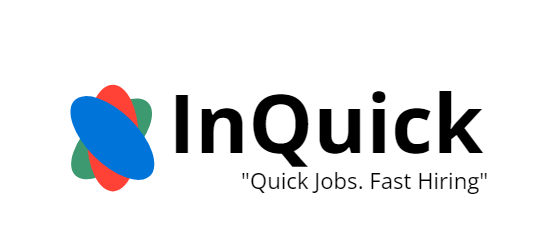- Afghanistan
- Åland Islands
- Albania
- Algeria
- American Samoa
- Andorra
- Angola
- Anguilla
- Antarctica
- Antigua and Barbuda
- Argentina
- Armenia
- Aruba
- Australia
- Austria
- Azerbaijan
- Bahamas
- Bahrain
- Bangladesh
- Barbados
- Belarus
- Belgium
- Belize
- Benin
- Bermuda
- Bhutan
- Bolivia
- Bonaire, Sint Eustatius, and Saba
- Bosnia and Herzegovina
- Botswana
- Bouvet Island
- Brazil
- British Indian Ocean Territory
- British Virgin Islands
- Brunei
- Bulgaria
- Burkina Faso
- Burundi
- Cambodia
- Cameroon
- Canada
- Cape Verde
- Cayman Islands
- Central African Republic
- Chad
- Chile
- China
- Christmas Island
- Cocos [Keeling] Islands
- Colombia
- Comoros
- Cook Islands
- Costa Rica
- Croatia
- Cuba
- Curaçao
- Cyprus
- Czech Republic
- Congo - Kinshasa
- Denmark
- Djibouti
- Dominica
- Dominican Republic
- Timor-Leste
- Ecuador
- Egypt
- El Salvador
- Equatorial Guinea
- Eritrea
- Estonia
- Ethiopia
- Falkland Islands
- Faroe Islands
- Fiji
- Finland
- France
- French Guiana
- French Polynesia
- French Southern Territories
- Gabon
- Gambia
- Georgia
- Germany
- Ghana
- Gibraltar
- Greece
- Greenland
- Grenada
- Guadeloupe
- Guam
- Guatemala
- Guernsey
- Guinea
- Guinea-Bissau
- Guyana
- Haiti
- Heard Island and McDonald Islands
- Honduras
- Hong Kong SAR China
- Hungary
- Iceland
- India
- Indonesia
- Iran
- Iraq
- Ireland
- Isle of Man
- Israel
- Italy
- Côte d’Ivoire
- Jamaica
- Japan
- Jersey
- Jordan
- Kazakhstan
- Kenya
- Kiribati
- Kosovo
- Kuwait
- Kyrgyzstan
- Laos
- Latvia
- Lebanon
- Lesotho
- Liberia
- Libya
- Liechtenstein
- Lithuania
- Luxembourg
- Macau SAR China
- Macedonia
- Madagascar
- Malawi
- Malaysia
- Maldives
- Mali
- Malta
- Marshall Islands
- Martinique
- Mauritania
- Mauritius
- Mayotte
- Mexico
- Micronesia
- Moldova
- Monaco
- Mongolia
- Montenegro
- Montserrat
- Morocco
- Mozambique
- Myanmar [Burma]
- Namibia
- Nauru
- Nepal
- Netherlands
- Netherlands Antilles
- New Caledonia
- New Zealand
- Nicaragua
- Niger
- Nigeria
- Niue
- Norfolk Island
- North Korea
- Northern Mariana Islands
- Norway
- Oman
- Pakistan
- Palau
- Palestinian Territories
- Panama
- Papua New Guinea
- Paraguay
- Peru
- Philippines
- Pitcairn Islands
- Poland
- Portugal
- Puerto Rico
- Qatar
- Congo - Brazzaville
- Réunion
- Romania
- Russia
- Rwanda
- Saint Barthélemy
- Saint Helena
- Saint Kitts and Nevis
- Saint Lucia
- Saint Martin
- Saint Pierre and Miquelon
- Saint Vincent and the Grenadines
- Samoa
- San Marino
- São Tomé and Príncipe
- Saudi Arabia
- Senegal
- Serbia
- Serbia and Montenegro
- Seychelles
- Sierra Leone
- Singapore
- Sint Maarten
- Slovakia
- Slovenia
- Solomon Islands
- Somalia
- South Africa
- South Georgia and the South Sandwich Islands
- South Korea
- South Sudan
- Spain
- Sri Lanka
- Sudan
- Suriname
- Svalbard and Jan Mayen
- Swaziland
- Sweden
- Switzerland
- Syria
- Taiwan
- Tajikistan
- Tanzania
- Thailand
- Togo
- Tokelau
- Tonga
- Trinidad and Tobago
- Tunisia
- Turkey
- Turkmenistan
- Turks and Caicos Islands
- Tuvalu
- U.S. Virgin Islands
- Uganda
- Ukraine
- United Arab Emirates
- United Kingdom
- United States
- U.S. Minor Outlying Islands
- Uruguay
- Uzbekistan
- Vanuatu
- Vatican City
- Venezuela
- Vietnam
- Wallis and Futuna
- Western Sahara
- Yemen
- Zambia
- Zimbabwe
🔄 How to Switch Careers: Steps to Take When Making a Career Change

🔄 How to Switch Careers: Steps to Take When Making a Career Change
🔄 How to Switch Careers: Steps to Take When Making a Career Change
Making a career change can feel like a daunting decision, but it’s a powerful way to pursue new opportunities, develop new skills, and reignite your professional passion. Whether you’re looking to switch industries or simply pivot to a different role, a successful career transition is achievable with the right strategy and mindset.
Here’s your ultimate guide on how to make a smooth and successful career change.
🎯 1. Assess Why You Want to Make a Career Change
Before diving into the transition process, it’s important to understand why you’re making the change. Are you seeking a better work-life balance, higher salary, more meaningful work, or a role that aligns better with your interests?
- Self-Reflection: Take some time to assess your current situation. Write down the reasons why you want a change and what you’re hoping to achieve.
- Identify Strengths and Passions: Reflect on your strengths and skills. Consider what roles excite you and where your passions lie.
Understanding your motivations will guide your decision-making process and help you make a change that aligns with your long-term goals.
💼 2. Research Your Desired Career Path
Once you’ve clarified your reasons for changing careers, it’s time to dig deeper into your target field. Researching your new career path will help you understand what skills, qualifications, and experiences are required.
- Industry Research: Read up on the industry trends, challenges, and key players. Websites like InQuick.com offer resources and job listings for various industries, helping you identify growth areas and opportunities.
- Job Roles: Look for roles that align with your interests. Use platforms like LinkedIn or Indeed to explore job descriptions and required qualifications.
- Salary Expectations: Check salary expectations for your desired roles to ensure the career change aligns with your financial goals.
By researching the industry, you can make an informed decision about your new career direction.
🧑🏫 3. Bridge the Skills Gap
To make a smooth transition into your new career, you may need to gain additional skills or qualifications. Upskilling is one of the most important steps in successfully changing careers.
- Identify Required Skills: Look at job descriptions for your target roles to identify the key skills that employers seek.
- Take Online Courses: Platforms like Coursera, Udemy, and LinkedIn Learning offer affordable courses in a wide variety of industries.
- Certifications: Some fields require certifications. For example, if you’re moving into project management, a PMP certification may be required.
Investing in your education and skillset will boost your confidence and make you a more attractive candidate to potential employers.
🧑💻 4. Tailor Your Resume and Cover Letter
One of the most critical aspects of a successful career change is adapting your resume and cover letter to reflect your new career direction.
- Highlight Transferable Skills: Look for skills in your current role that can be transferred to your new field. Communication, project management, and problem-solving skills are valuable in almost every industry.
- Showcase Relevant Experience: If you’ve taken any courses or worked on relevant projects, be sure to mention them.
- Personalize Your Application: Tailor your cover letter to demonstrate your enthusiasm for the career change and explain why you’re a good fit for the role despite being from a different field.
Customizing your resume and cover letter for each job application increases your chances of getting noticed by hiring managers.
🤝 5. Network with Industry Professionals
Networking is essential in any career, but it’s especially critical when switching to a new industry. Your existing connections may not be directly involved in your new field, so actively building new relationships is key.
- Attend Industry Events: Look for conferences, meetups, or webinars related to your new industry. It’s a great way to meet industry professionals and learn more about your future career.
- Use LinkedIn: Reach out to professionals in your target industry, ask for informational interviews, and join relevant LinkedIn groups.
- Leverage Existing Connections: Don’t hesitate to ask your current contacts if they know anyone in your new field who could offer advice or job leads.
Networking helps you gain insights and potentially opens doors to job opportunities.
🧳 6. Start Applying for Jobs
Once you’ve researched your target career, gained the necessary skills, and tailored your application materials, it’s time to start applying for jobs in your new field.
- Focus on Entry-Level Roles: Even though you’re switching careers, apply for roles that match your skill set. You may need to start at a lower level than you’re used to, but the experience will help you grow in your new career.
- Internships and Freelance Work: If you’re struggling to land a full-time role, consider internships, freelance work, or volunteering to gain hands-on experience and build your resume.
- Be Open-Minded: Remember, your first job in your new career may not be your dream job, but it’s an essential step toward your long-term goal.
The more positions you apply for, the better your chances of finding the right role that allows you to transition smoothly into your new career.
🧑💼 7. Be Patient and Persistent
Switching careers can take time, and it’s important to remain patient throughout the process. You may face challenges, setbacks, and rejections, but persistence is key.
- Stay Positive: Changing careers can be challenging, but remember that each rejection is an opportunity to learn and improve.
- Track Your Progress: Keep a record of applications, feedback, and interviews to analyze your approach and adjust your strategy if necessary.
Patience and persistence will help you stay focused and motivated as you work toward achieving your career change goals.
🌱 8. Consider Temporary or Part-Time Roles
If you’re not able to immediately land a full-time job in your desired field, consider temporary or part-time roles as a way to get your foot in the door. These positions can provide you with relevant experience and help you build your resume while you continue searching for your ideal full-time job.
- Contract Positions: These jobs offer flexibility and experience, allowing you to build credibility in your new field.
- Part-Time Opportunities: Part-time work may also help you transition into a new role while giving you the flexibility to pursue additional education or certifications.
By exploring these alternatives, you can gain industry-specific experience and increase your chances of finding a full-time position.
🌍 9. Stay Flexible and Adaptable
Career changes often come with unexpected challenges, so being flexible and adaptable is essential for a smooth transition. Be open to new job titles, industries, and learning experiences.
- Embrace Change: Switching careers means stepping out of your comfort zone. Embrace new challenges, technologies, and ways of working.
- Be Open to Feedback: Be receptive to feedback from supervisors and mentors. This feedback will help you refine your skills and grow in your new role.
Flexibility is essential when navigating new career paths, and it will help you successfully adapt to your new job.
🎯 Conclusion: Take the Leap and Change Your Career!
Making a career change is a big decision, but with the right preparation, research, and determination, you can achieve success in your new career path. By following these steps—assessing your motivations, gaining new skills, networking, and applying for jobs—you’ll be well on your way to a fulfilling and rewarding career change.
For more resources, job listings, and expert advice, visit InQuick.com. Explore career opportunities in various industries, get guidance on resumes, and find courses that will help you succeed in your career transition.

 by InQuick
by InQuick



